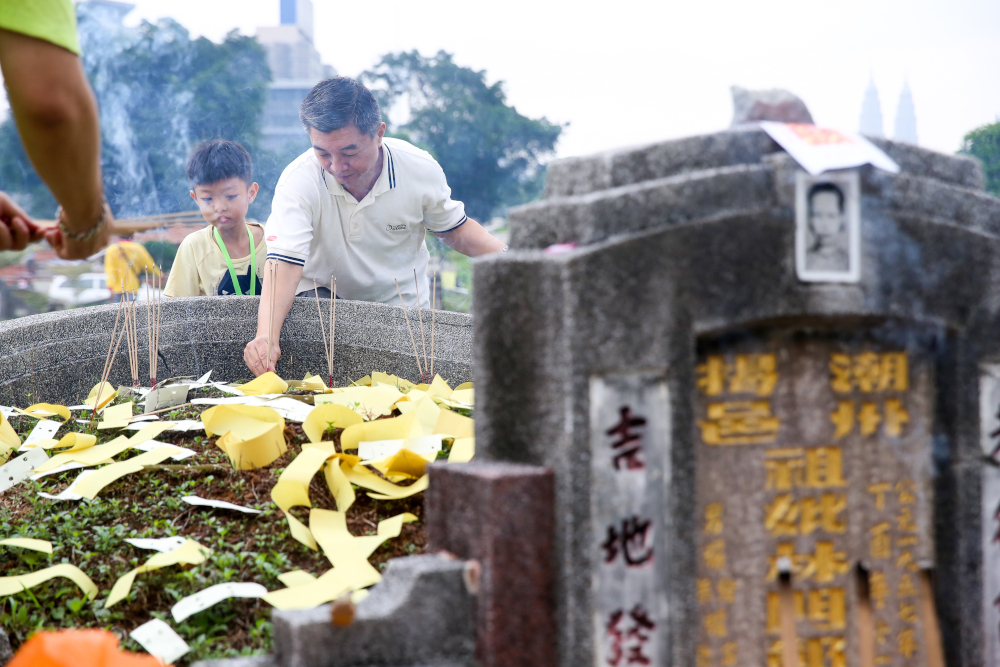PETALING JAYA, March 26 — It’s that time of the year again where droves of families gather at the cemetery to pay respects to their ancestors.
Known as Qing Ming or Tomb-Sweeping Day, the festival holds special importance to the Chinese community in Malaysia who continue to practice Confucian rituals.
Here are five things to know about the festival which falls on April 5 this year.
It’s steeped in tradition

Qing Ming has been celebrated for more than 5,000 years by every stratum of Chinese society, ranging from the rich to the poor.
Family members are expected to perform acts of filial piety such as praying, tomb-sweeping, and burning paper offerings for their deceased relatives.
It is believed that a Chinese person who performs the rituals will be blessed with good fortune while those who fail to honour their ancestors will incur the wrath of their spirits.
The paper offerings can get fancy...very fancy

Despite being around for more than 50 centuries, Qing Ming always makes sure to keep up with the times.
It’s common to find paper offerings modelled after smartphones, electronic tablets, and high-definition television sets so your ancestors can enjoy modern technology from the other side.
One Malaysian named Jonathan Fun uploaded a picture of this year’s Qing Ming offering for his grandfather which included a paper SUV and even a petrol station.
Burning a hummer for grandpa this year. Just in case petrol is scarce down there, we have also thrown in a petrol station. pic.twitter.com/154MhedIkP
— Jonathan Fun (@jonathanfun) 24 March 2019
The good afterlife
But what exactly are all these paper offerings for anyway?
Those who celebrate Qing Ming believe that burning the items will ensure their ancestors can continue to enjoy material comforts in the afterlife.
Even if families aren’t keen on purchasing paper houses and cars for the dead, many will burn “hell money” which ancestors can use as currency in the underworld.
Busybodies beware

Qing Ming comes with a whole host of taboos that people are encouraged to keep in mind when visiting their relative’s resting place.
For example, those who are prone to peeping over at other people’s graves are advised to keep their thoughts to themselves.
It is believed that any individual who comments on the deceased out loud will invite spirits to latch onto them and follow them home.
Other taboos include not stepping over someone’s grave or making too much noise at the site for fear of disturbing the spirits.
Not for the sick or weak

Pregnant women, children, and the elderly are advised to stay at home during the Qing Ming festival instead of making the arduous trek to the graves of their ancestors.
The high level of yin energy (also known as dark energy) at the cemetery is believed to have extremely negative effects on such individuals.
From a more practical standpoint, it’s not good for those who are physically weak to be standing under the hot sun outdoors and inhaling smoke from all the burning that will be going on during the day.























